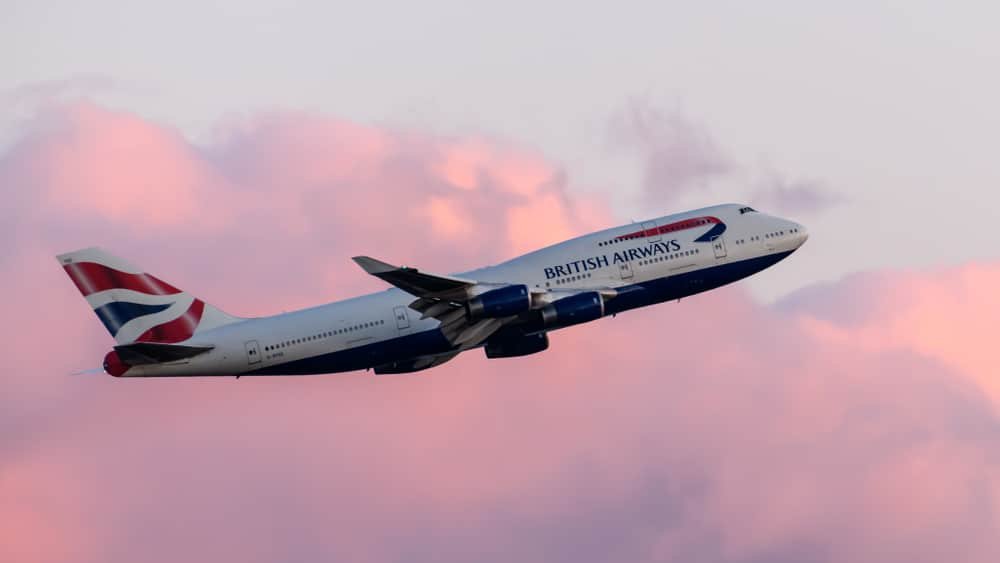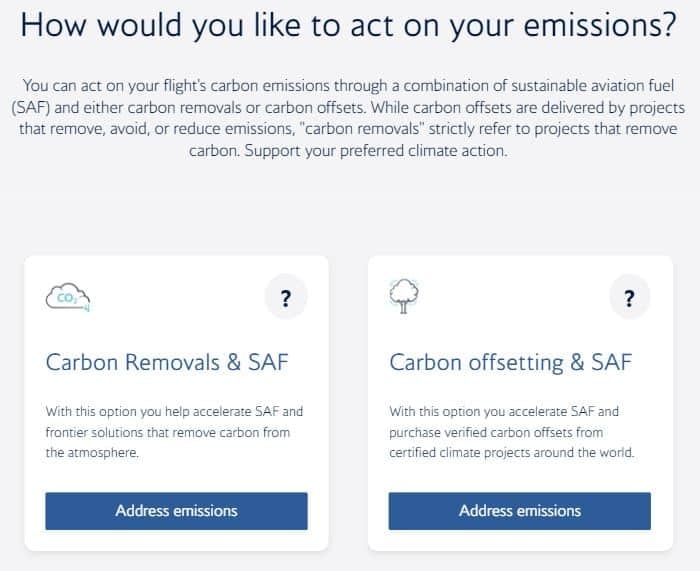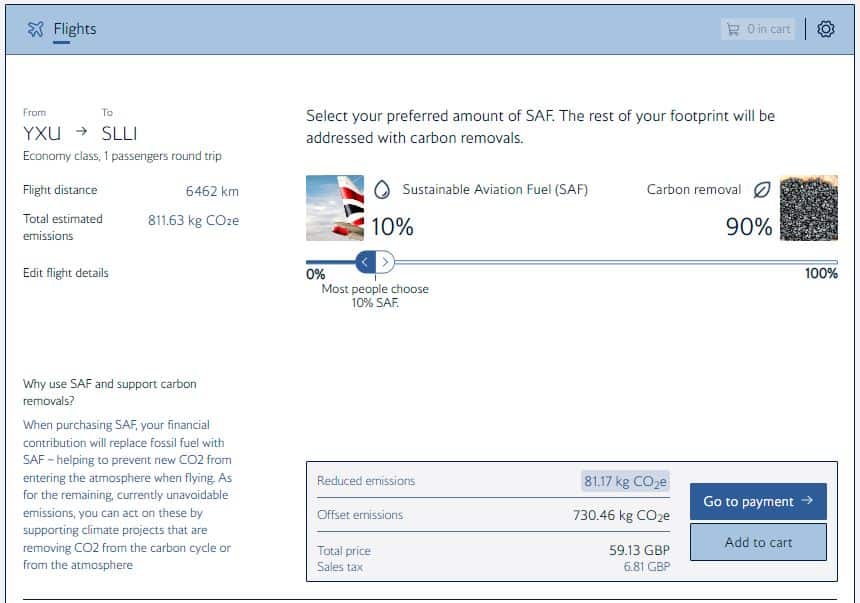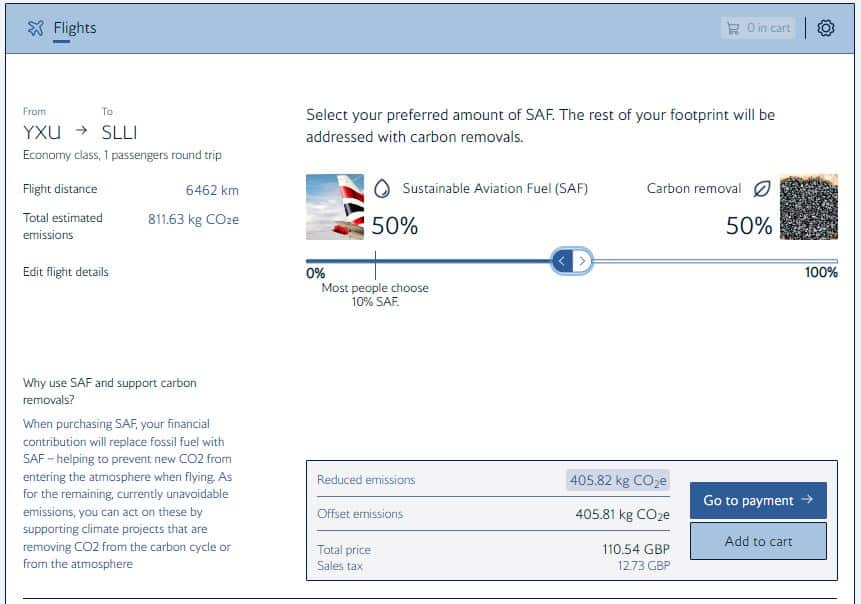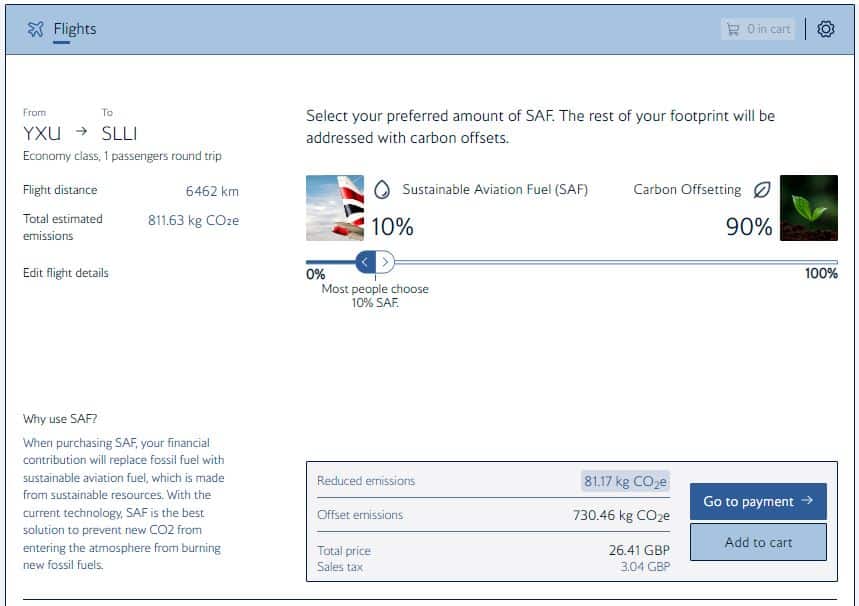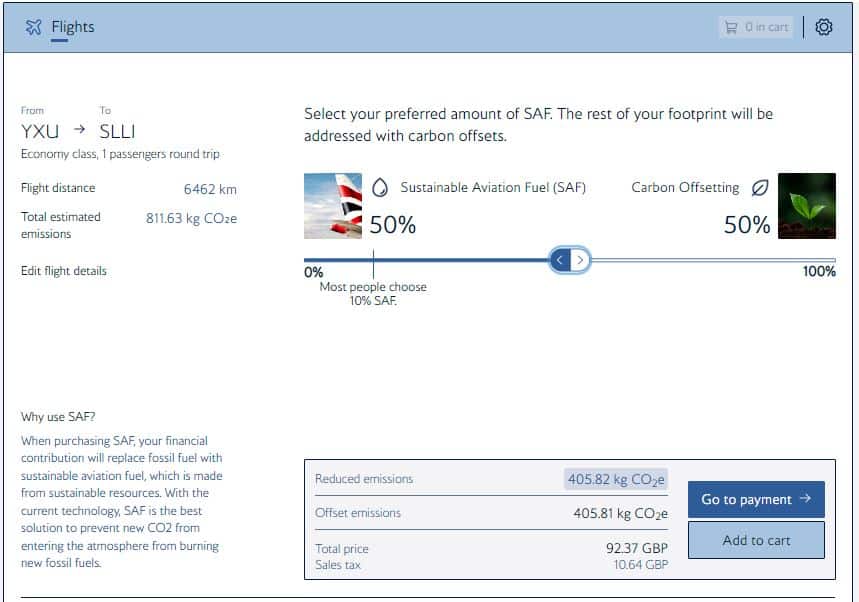British Airways introduced an option to all passengers who want to offset their flight emissions by buying carbon credits from a 3rd-party company.
British Airways added CO2 removal to its menu of carbon offsetting options via its upgraded climate platform, CO2llaborate. It allows passengers to tackle their carbon emissions when flying.
Cutting Carbon Emissions
The major UK airline already offsets the carbon footprint on all its flights within the country. The new initiative is part of the airline’s plan to reduce carbon emissions by 50% by 2050.
Not only does this give flyers a chance to calculate and address their flight emissions, but they can now buy carbon removal credits directly from their onboard aircraft seat.
Director of sustainability, Carrie Harris said:
“In 2019, when we committed to achieving net zero carbon emissions by 2050, we identified that a vital way to meet this goal would be by using carbon removals and we currently expect that these could contribute up to a third of our total action.”
The airline has already made the removal credits available to customers through its website and onboard flights.
British Airways’ move came days after it revealed its plans to buy 10 more aircraft from Boeing and Airbus. But some critics say that taking more flights can only worsen climate change.
Still, the airline company maintains that it’s taking actions to reduce its carbon emissions and cut its reliance on fossil fuels. These include improving operational efficiency, investing in more fuel-efficient aircraft, and scaling up the availability of sustainable aviation fuel (SAF).
Now the airline seeks to help hasten the scale-up of carbon removals solutions. And so, it now allows passengers to choose between a combination of SAF and either carbon offsets or carbon removals as a means of slashing their CO2 footprint.
CO2llaborate: Carbon Offsets & SAF vs. Carbon Removals & SAF
Carbon offsets come from projects that remove, avoid, or reduce emissions. On the other hand, carbon removals refer to projects that remove carbon.
In other words, when flyers choose carbon removals, they’re supporting projects (e.g., nature-based solutions or technologies) that withdraw carbon from the air and then store the carbon for the medium to long term. But if they pick carbon offsetting by buying carbon credits, they may be supporting a project that removes or reduces or avoids carbon.
British Airways’ flight emission calculation tool uses a slider that selects the amount of SAF and carbon removals, or SAF and carbon offsets. Flyers are also given a direct link where to buy carbon credits.
Here’s a quick overview of the airline’s process to show the difference between these two options, with an example of a flight. It’s a round trip between London and India.
A flyer can choose the most common ratio of 10% SAF and 90% carbon removals.
By comparison, going for more SAF results in a higher price.
Likewise, flyers can set any desired ratio of SAF to carbon offsets. Again, more SAF ratio will bring the total price higher. But overall, carbon offsets remain cheaper than carbon removals.
British Airways’ new carbon removal program will initially be available for flights from London Heathrow Airport to New York, Los Angeles, San Francisco, Chicago, Miami, Hong Kong and Mumbai.
British Airways and Carbon Removal
Flyers can opt for a blend of two independently certified carbon removal projects on the CO2llaborate platform:
- The Blue Carbon Mangrove Project – reforestation and revegetation of about 225,000 hectares of degraded tidal wetlands in Pakistan’s Indus Delta.
- The Freres Biochar Project – based in Oregon, ensuring that the company’s biomass power production plant produce biochar (charcoal-like material that locks away carbon)
More CO2 removal projects will be added. The carbon offsetting option allows passengers to offset personal emissions by planting trees on their behalf in Brazil’s rainforests.
The new carbon removal program is available to all British Airways customers who fly on a long-haul route. It can be from any airport in Europe to any airport outside the continent.

